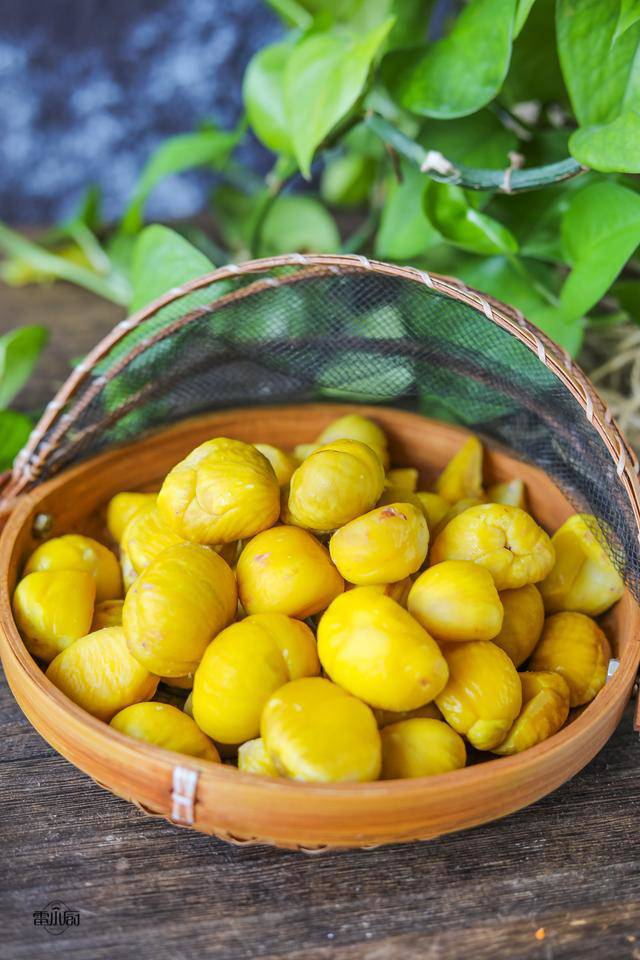Chestnuts, scientifically known as Aesculus Hippocastanum, are a nutritious food often enjoyed as a snack, used in cooking, or incorporated into traditional medicine. With a unique blend of essential nutrients, chestnuts offer a plethora of health benefits, especially for pregnant women and their developing fetuses.

Chestnuts are an excellent source of energy, providing approximately 57 – 153 kcal per 100g serving. They also contain essential proteins (2g), healthy fats (1-3g), including beneficial omega-3 and omega-6 fatty acids, and a good balance of carbohydrates (13-34g) and fiber (8.1g). Notably, chestnuts are one of the few nuts that contain vitamin C, boasting an impressive 43mg per serving.
In addition to its impressive nutritional profile, chestnuts are a rich source of potassium (119 – 715mg) and a host of other essential vitamins and minerals. These include vitamins B1, B2, B3, B5, and B6, vitamin E, folic acid, magnesium, calcium, phosphorus, zinc, copper, and iron. The nut also contains powerful antioxidants such as polyphenols and flavonoids, which bolster cellular health and offer comprehensive support for overall wellness.
## Benefits of Chestnuts for Pregnant Women:
Pregnant women can reap numerous benefits from incorporating chestnuts into their diets:
**
Cholesterol Control:
**
Chestnuts are rich in beneficial omega-3 and omega-6 fatty acids, which are essential for the formation and development of the fetus’s brain and vision. These healthy fats also help lower bad cholesterol (LDL) levels, reducing the risk of cardiovascular issues, a common concern during pregnancy.
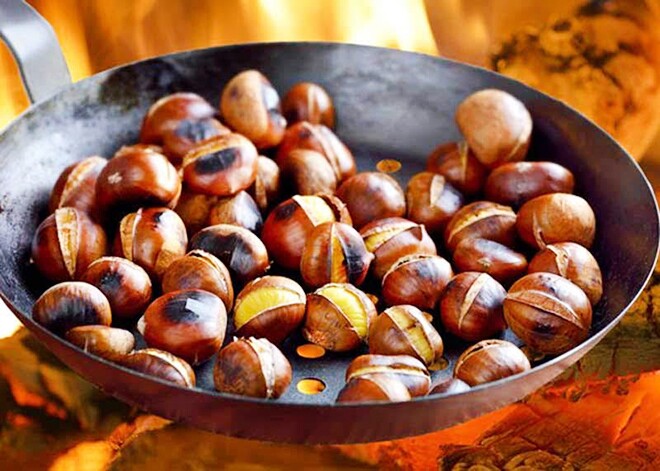
**
Improved Digestive Health:
**
Chestnuts are an excellent source of fiber, which promotes healthy digestion and helps alleviate constipation, a common issue during pregnancy. The fiber in chestnuts supports a healthy gut and enhances overall comfort throughout the pregnancy journey.
**
Vitamin and Mineral Boost:
**
Chestnuts offer a plethora of essential vitamins, including B1, B2, B6, C, and E, as well as critical minerals such as potassium, calcium, iron, magnesium, and zinc. These nutrients are vital for maintaining the overall health of both mother and fetus, supporting stable development.
**
Immune System Support:
**
The antioxidants, vitamin C, and B-complex vitamins in chestnuts fortify the body’s natural defenses, protecting against pathogens. These nutrients also contribute to the development of strong teeth, bones, and blood vessels.
**
Weight Management:
**
Chestnuts are a low-calorie, low-fat food that provides a feeling of fullness. This makes them an excellent choice for pregnant women aiming to control their weight while ensuring sufficient energy intake for themselves and their growing babies.
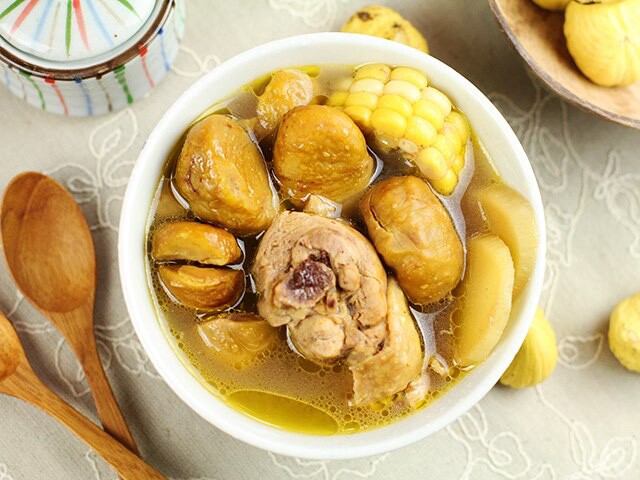
**
Brain and Skin Health:
**
The B-complex vitamins in chestnuts play a crucial role in energy metabolism and support the production of red blood cells, essential for nourishing the fetus. Additionally, these vitamins improve skin health, reducing the risk of melasma, freckles, and stretch marks during pregnancy.
**
Chronic Disease and Cancer Prevention:
**
Chestnuts contain powerful antioxidants, including polyphenols and vitamin C, which neutralize free radicals associated with cellular damage and the development of chronic diseases, including cancer.
**
Prevention of Birth Defects:
**
Chestnuts are a source of folate, a critical nutrient during early pregnancy. Folate helps prevent neural tube defects, ensuring the healthy development of the fetus from the earliest stages.
## Precautions for Pregnant Women:
While chestnuts offer a wealth of nutrients, some precautions should be considered to ensure optimal safety and effectiveness:
**
– Proper Preparation:
** Clean and shell chestnuts before consumption to avoid digestive issues and preserve their flavor.
**
– Opt for Pure Chestnuts:
** Choose fresh, untreated chestnuts over those coated in sugar or heavily seasoned. Heavily seasoned chestnuts may contain excessive amounts of sodium and sugar, leading to water retention, unhealthy weight gain, and edema during pregnancy.
**
– Moderate Consumption and Food Variety:
** Enjoy chestnuts in moderation and as part of a diverse diet. Avoid using chestnuts as a sole source of nutrition during pregnancy.
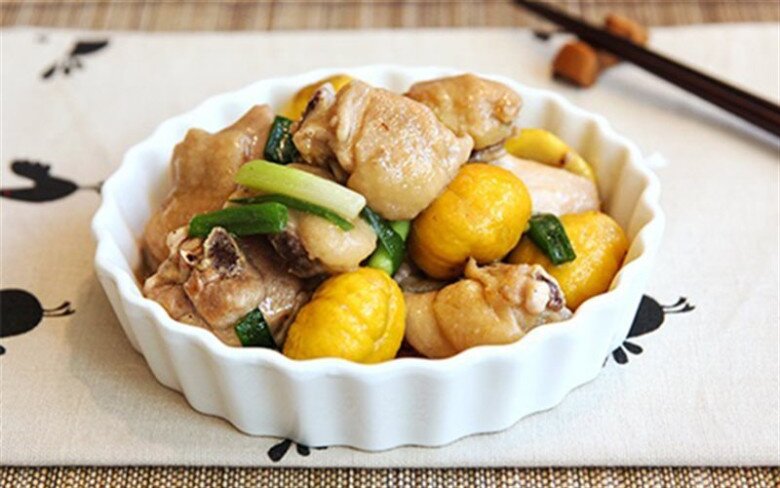
**
– Allergy Awareness:
** If you or your family have a history of nut allergies, exercise caution. Monitor your body’s response after initial consumption, and if necessary, refrain from eating chestnuts altogether.
**
– Avoid Damaged Chestnuts:
** Do not consume chestnuts showing signs of mold or discoloration, or burnt roasted chestnuts, as they may contain toxins or negatively impact digestion.
**
– Proper Storage:
** Store chestnuts in a cool, dry, and well-ventilated area, away from direct sunlight and moisture, to prevent infestation and mold growth.
**Note: Pregnant women with stomach, liver, or kidney issues should consult their doctors before including chestnuts in their diets.**
## An Efficient Way to Shell Chestnuts:
Here’s a handy trick to shell chestnuts effortlessly:
– When you buy chestnuts, there’s no need to wash them. Washing can make them slippery, increasing the risk of cutting your hand while shelling.
– Using a knife, make a small incision at the base of each chestnut. Then, carefully slice off a thin layer from the base without cutting too deep.
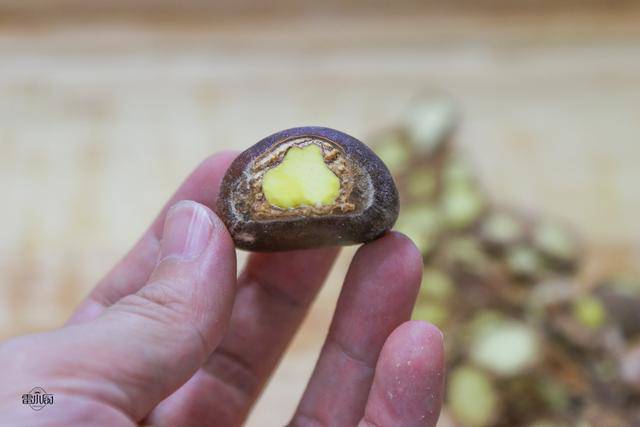
– In a pot, bring half a pot of water to a boil. Add a teaspoon of salt and stir. Place the chestnuts in the boiling water and cook for about 5 minutes. The hot water helps soften the shells.
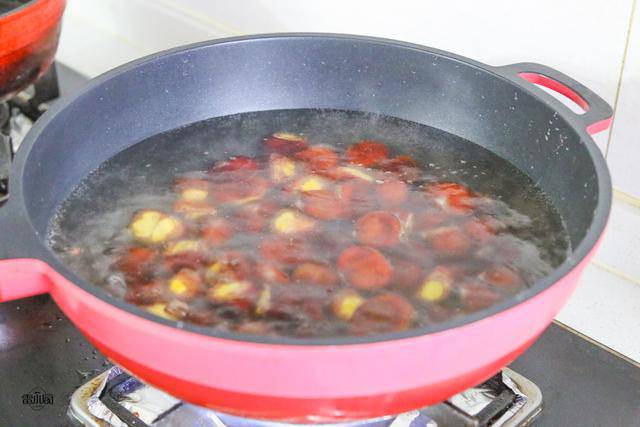
– After 5 minutes, remove the chestnuts from the water. The shells should now be soft and easy to peel. Salt helps soften the shells. However, it’s important to peel the chestnuts one by one as they cool down, as the shells will harden again.
– Take a chestnut and gently pry it open along the incision, separating the nut from the shell.
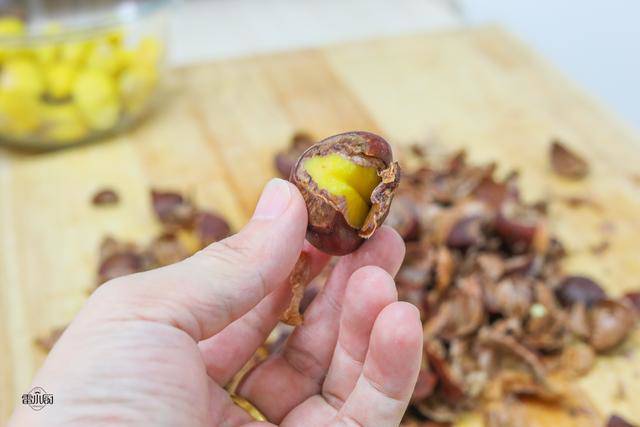
– You’ll end up with perfectly intact chestnuts. This simple method makes shelling a large batch of chestnuts a breeze.
